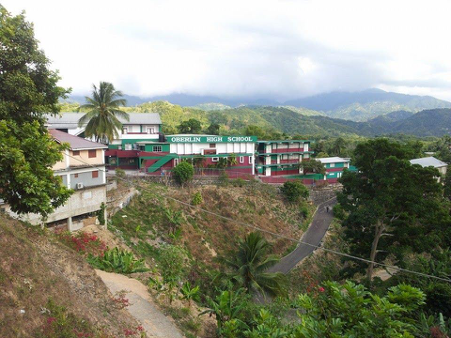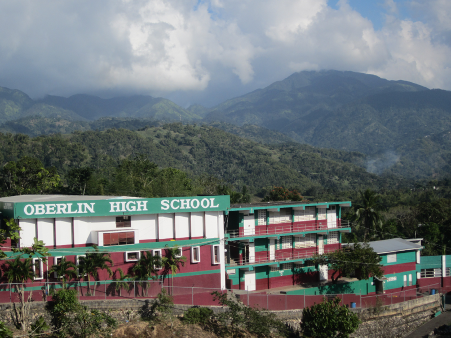HISTORY
Situated in West Rural St. Andrew, roughly 11 miles from Constant Spring, Oberlin High School, then Christian College began on January 7, 1946, with an enrollment of five students. The co-educational institution was established by the Disciples of Christ in Jamaica, presently the United Church in Jamaica and the Cayman Islands. In 1955, the school changed its name to Oberlin High in honour of the German-American educator, John Frederic Oberlin.
Mr. Oberlin, pastor of a church in the USA, founded Oberlin College in Ohio in 1833. Oberlin College, a private liberal arts college and conservatory of music in Oberlin, Ohio, is the oldest coeducational liberal arts college in the United States, and the second-oldest continuously operating coeducational institute of higher learning in the world.
At Oberlin High School, the cadre of teaching professionals and support staff assist the over 1,800 students to realise their full potential, “while fostering the sound Christian discipline on which every fabric of the school is built.”
The current administration continues to ignite students’ interests in all school activities, including its well-renowned Oberlin choir. Three times champions of TVJ’s “All Together Sing Competition,” the choir has had stellar performances at major music festivals and concert venues in Jamaica and the USA.

The school’s love for and accolades in music should be of no surprise, given the fact that Pastor John Frederic Oberlin was musically gifted, and that Oberlin College, Ohio is a premier music education facility.
AGRICULTURE AT OBERLIN
At Oberlin High, students are exposed to the subject of agriculture from Grades seven through to eleven.
They are taught that agriculture is the backbone to a socially and politically stable nation, and that although agriculture has historically focussed on the production of basic food crops, as the process of economic development accelerates, many other occupations are now aligned to the sector, thereby expanding their career choices. They can branch off into developing new farming technologies, marketing, processing (including manufacturing by-products), warehousing, and distribution.
Oberlin believes that it is vital for students to be introduced to agriculture as early as possible to facilitate scaffolding, as this will assist them greatly as they transition into the CSEC programme which requires a lot of practical engagements.
And since the school is nested in a community that is heavily invested in farming, studying agriculture will also help students to establish linkages with farmers in the community; thereby facilitating two-way knowledge transfer.
The school emphasises that its agriculture programme “is also equipping [students] to be self-sustainable entrepreneurs where they are able to contribute to community-building and by extension, the country’s economy.”
“After all,” they say, “a country that is able to secure food for its people is well on its way to sustainable financial stability.”
Source: oberlinhighja.com






